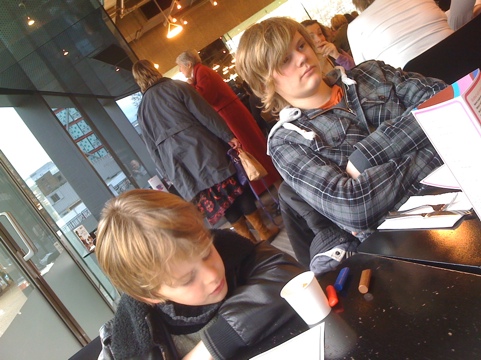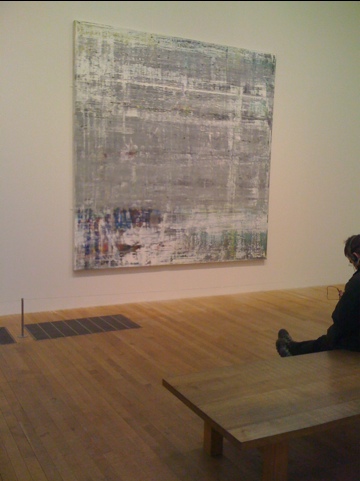Here we are sat in the the cafe at the Tate waiting for lunch before going to see the Gauguin exhibition – only 30 years late for my thesis!

There were many artists who were trying to claim freedom from nature, to allow themselves the pleasures of more self expression but who were held back by the simple fact that man himself was tied down with his links to nature. A break from naturalism was not to materialize until some twenty years later with the birth pangs of abstract art. The steps these artists of the 1880?s were looking for was a break from observed representation. Paris was a hotbed of ideas within the young educated (or being educated) middle class. Symbolism and its search for new the boundaries of creativity within literature and poetry began to point the way for these young men, their almost post modernist approach to their art looked to steal ideas from every form of intellectual discipline. These painters were a clique and were accused by their contemporaries of being too intellectual to be serious painters. Gauguin meet one of these young mavericks (Emile Bernard) in his Pont Aven period and embraced the younger mans theories.
Tags: gauguin
As much as I am a massive fan of Gauguin the highlight of my visit to Tate Modern was looking at the six Richter paintings, ‘John Cage’.
The urge and joy of letting paint drag n drop is…?

The Cage Paintings were conceived as a single coherent group, and displayed for the first time at the Venice Biennale in 2007. Their titles, Cage (1)-(6), pay homage to the American avant-garde composer John Cage (1912-1992). In his ‘Lecture on Nothing’, Cage famously declared “I have nothing to say and I’m saying it.” Richter is equally suspicious of ideologies and any claim to absolute truth. He shies away from giving psychological interpretations to his paintings, preferring to allow viewers and critics to make up their own minds.